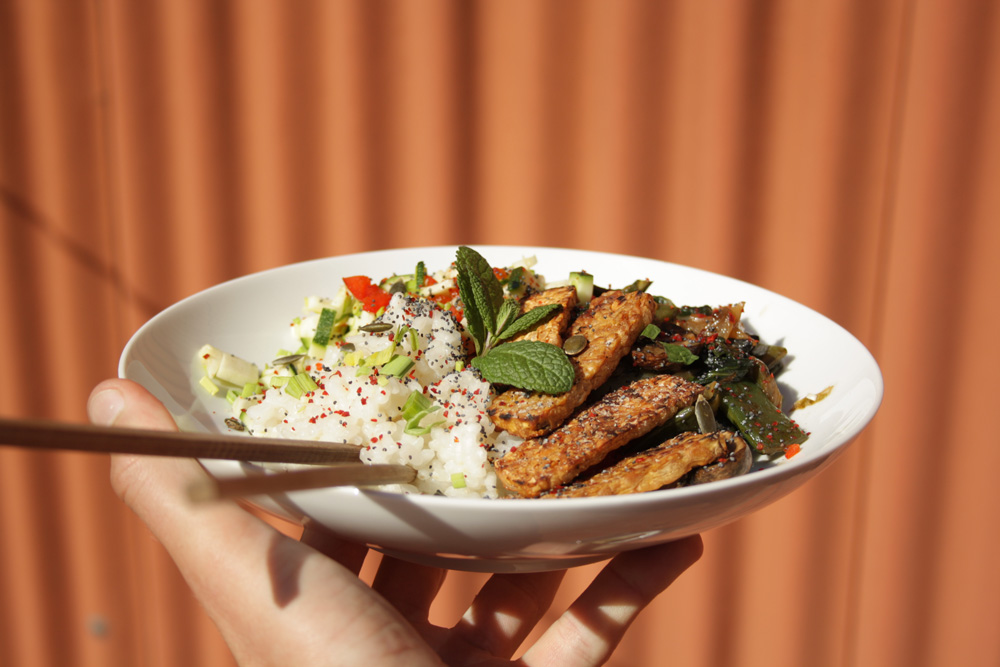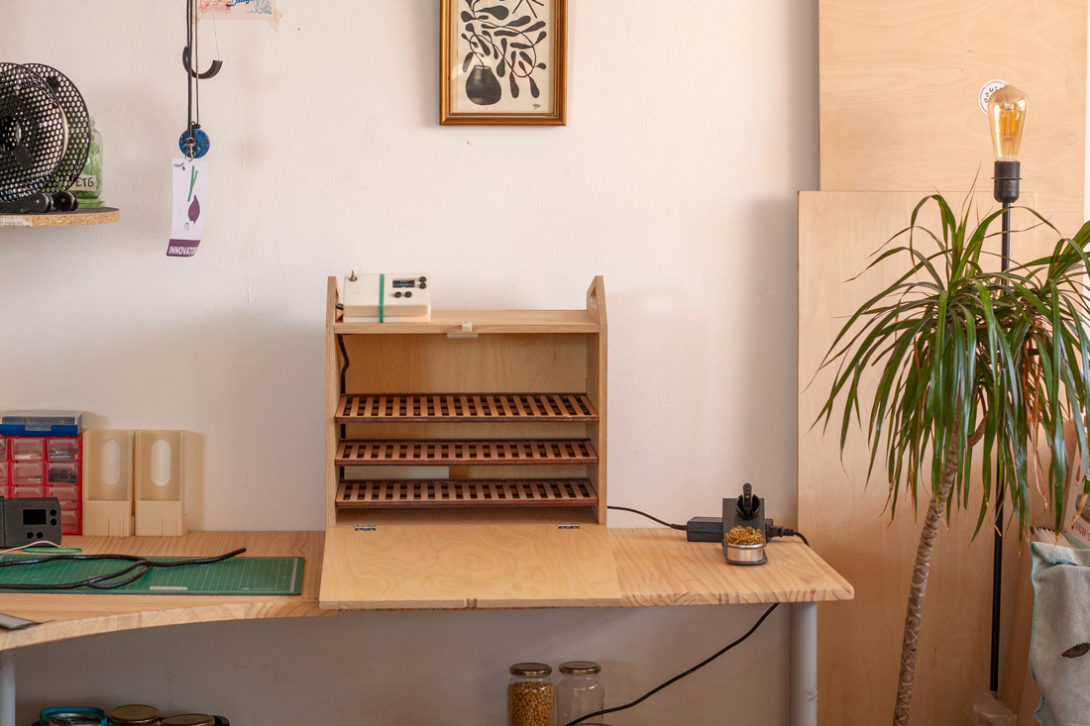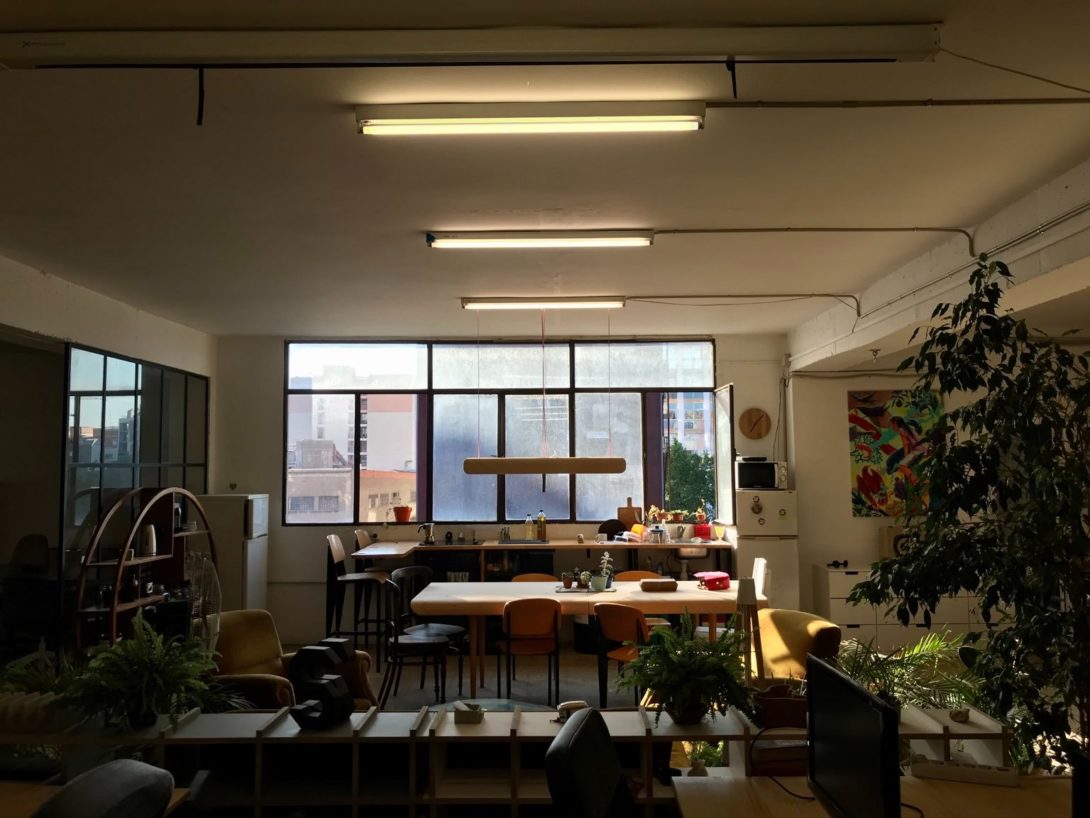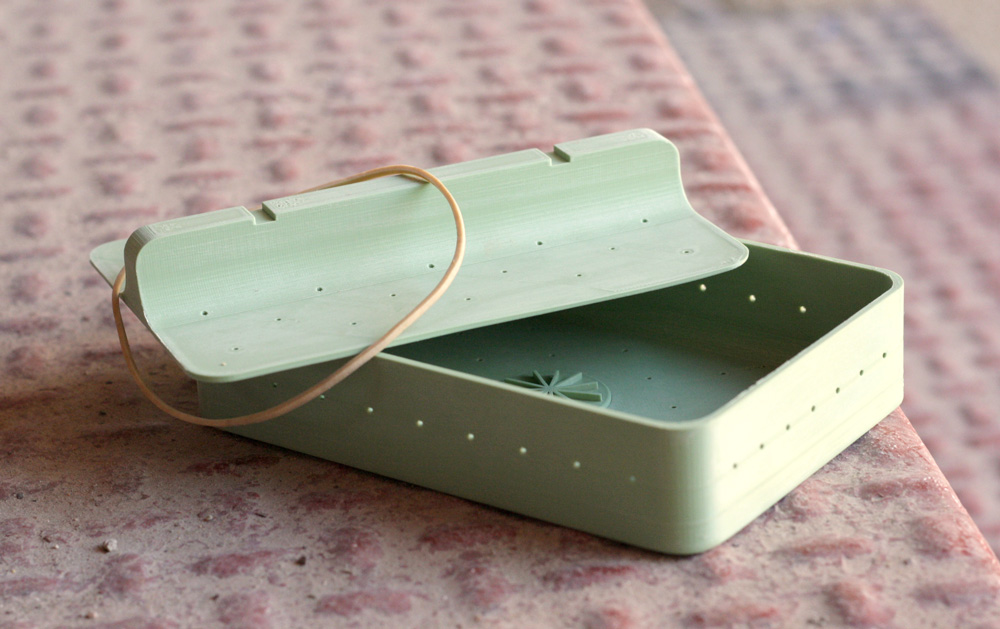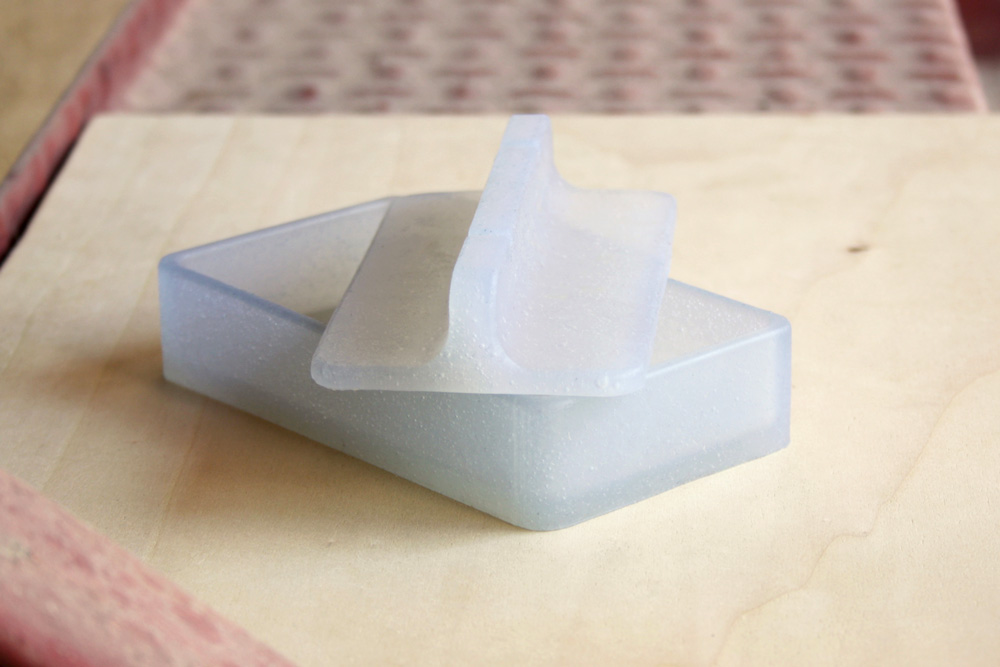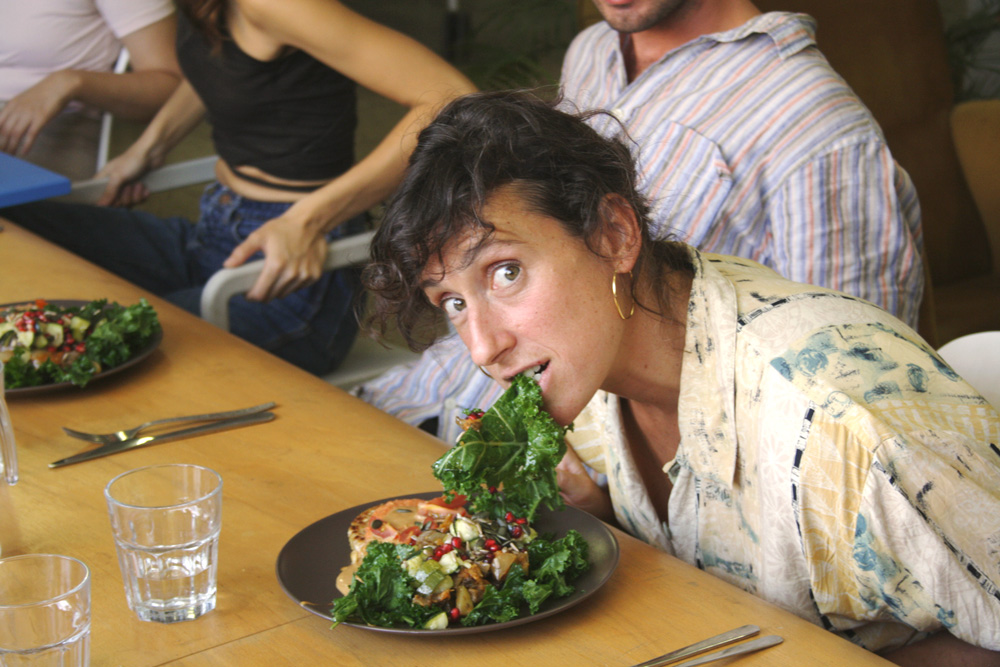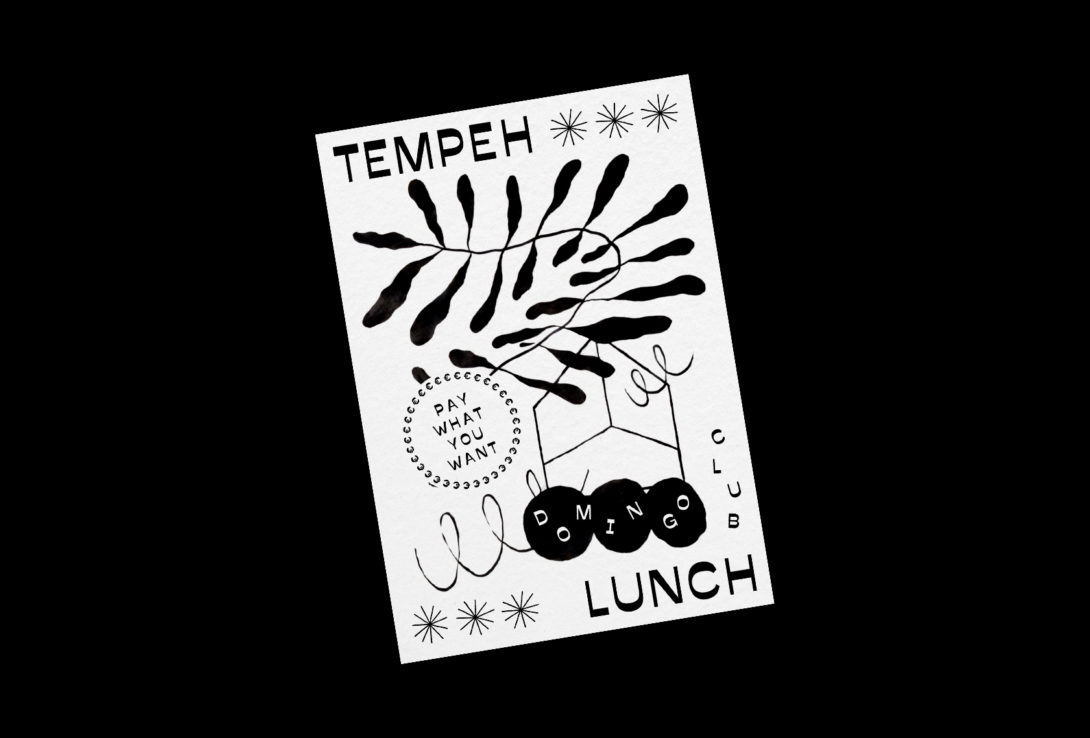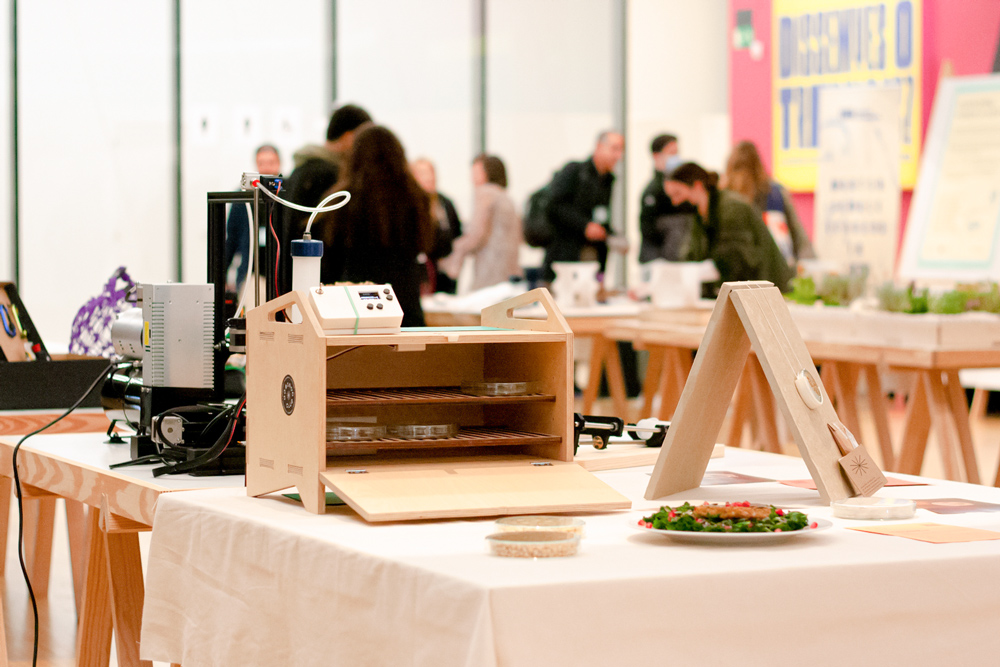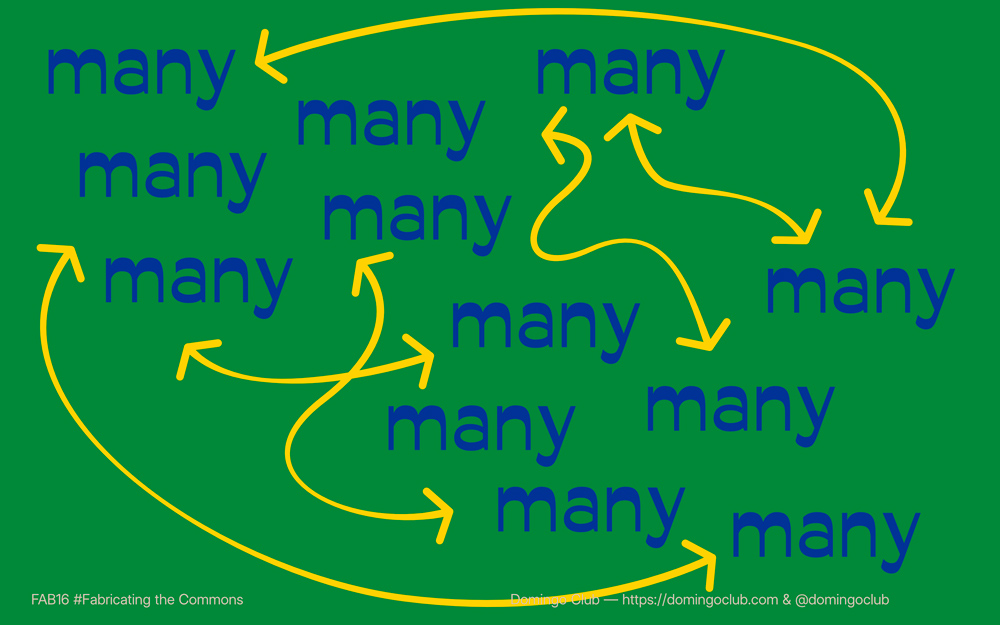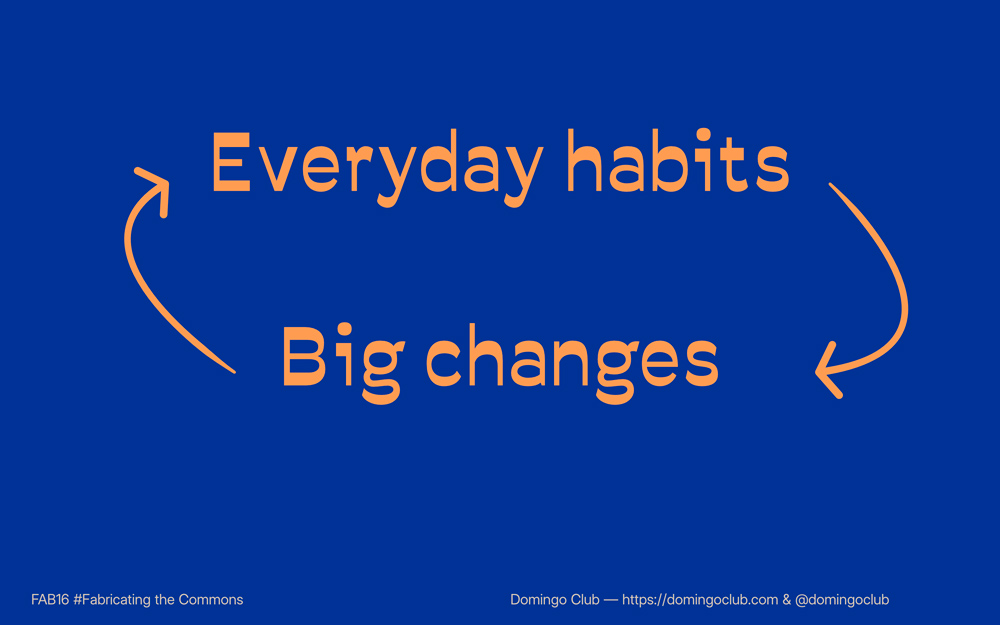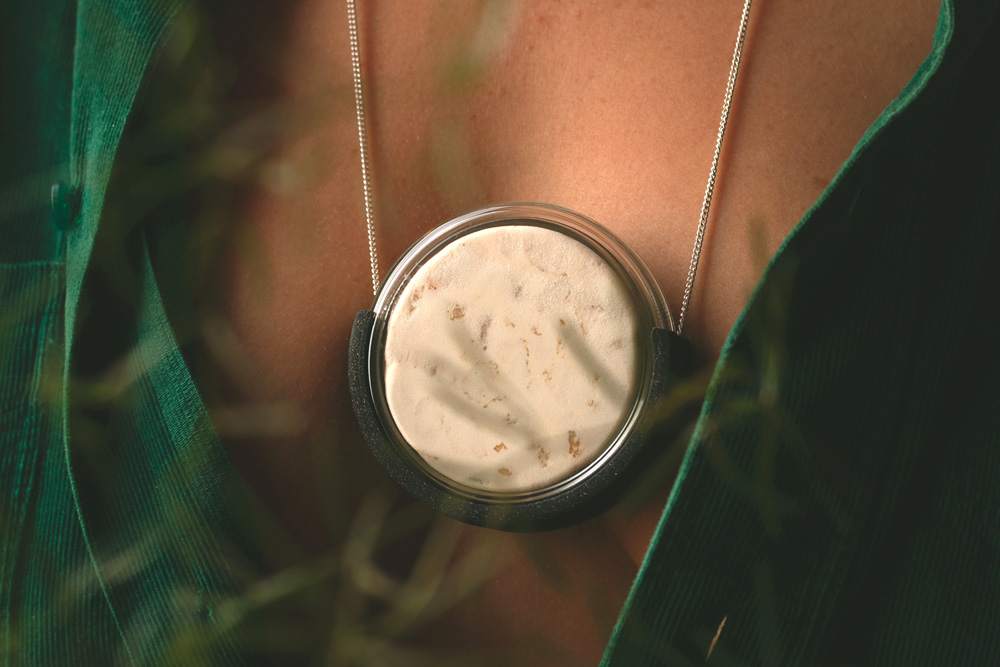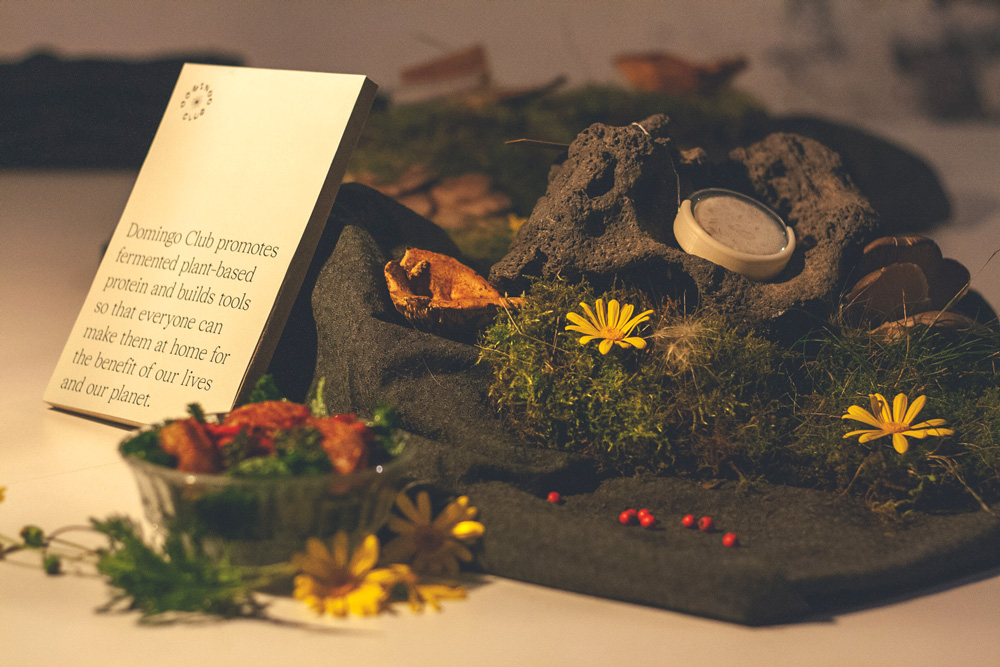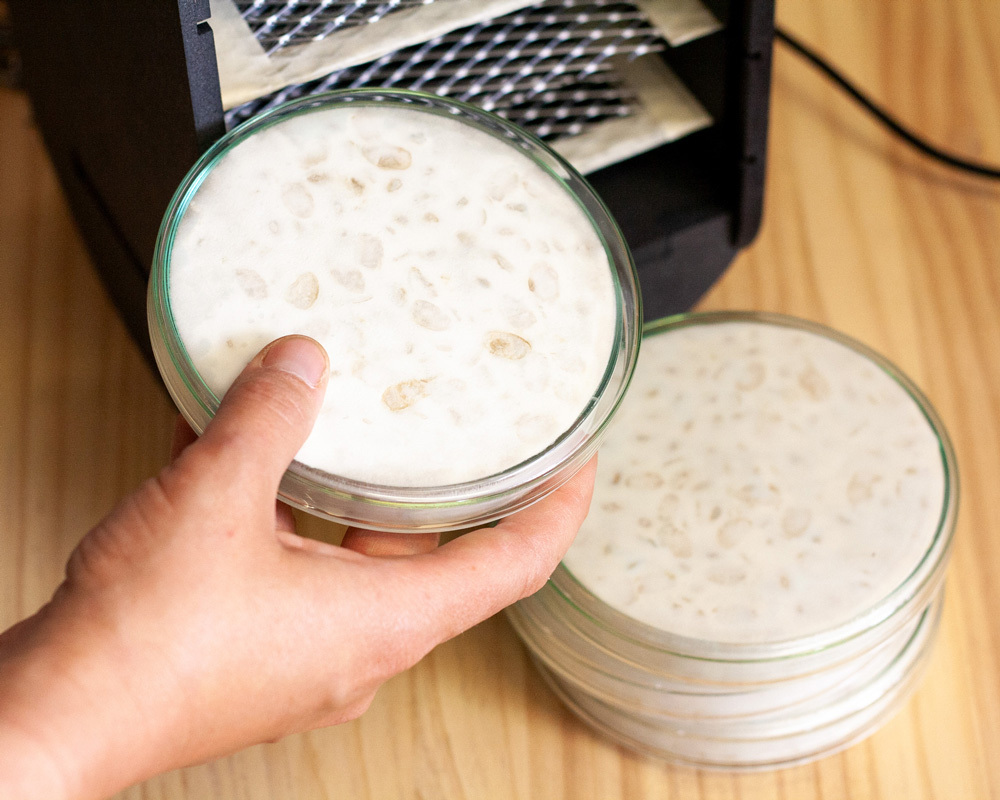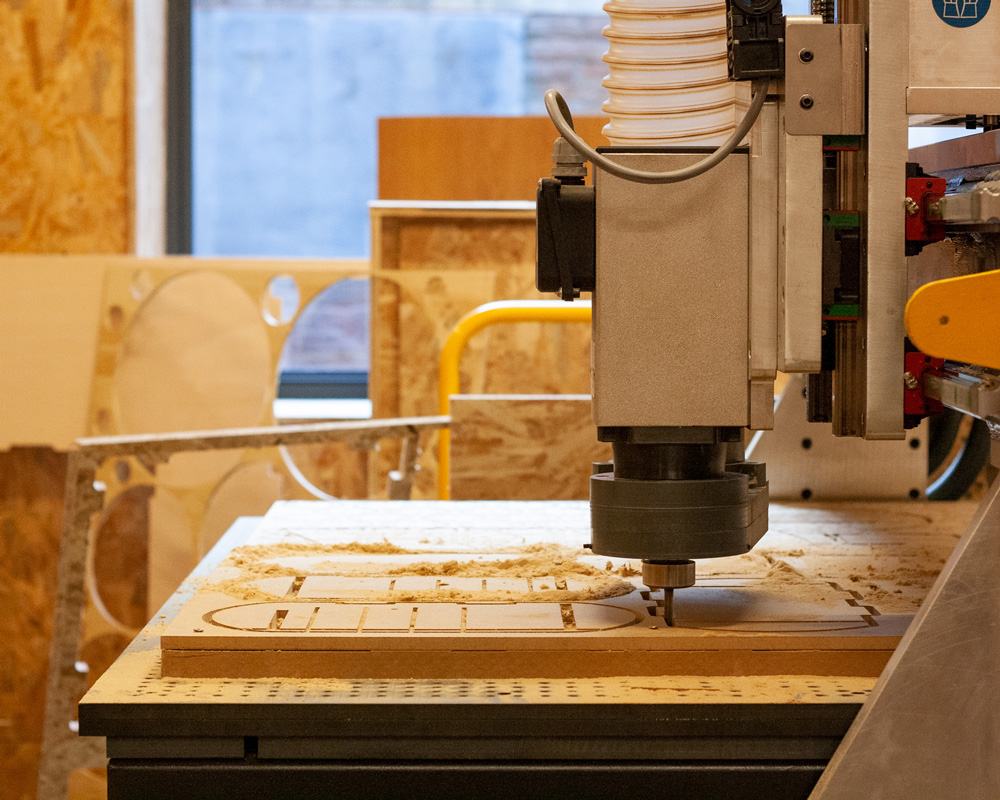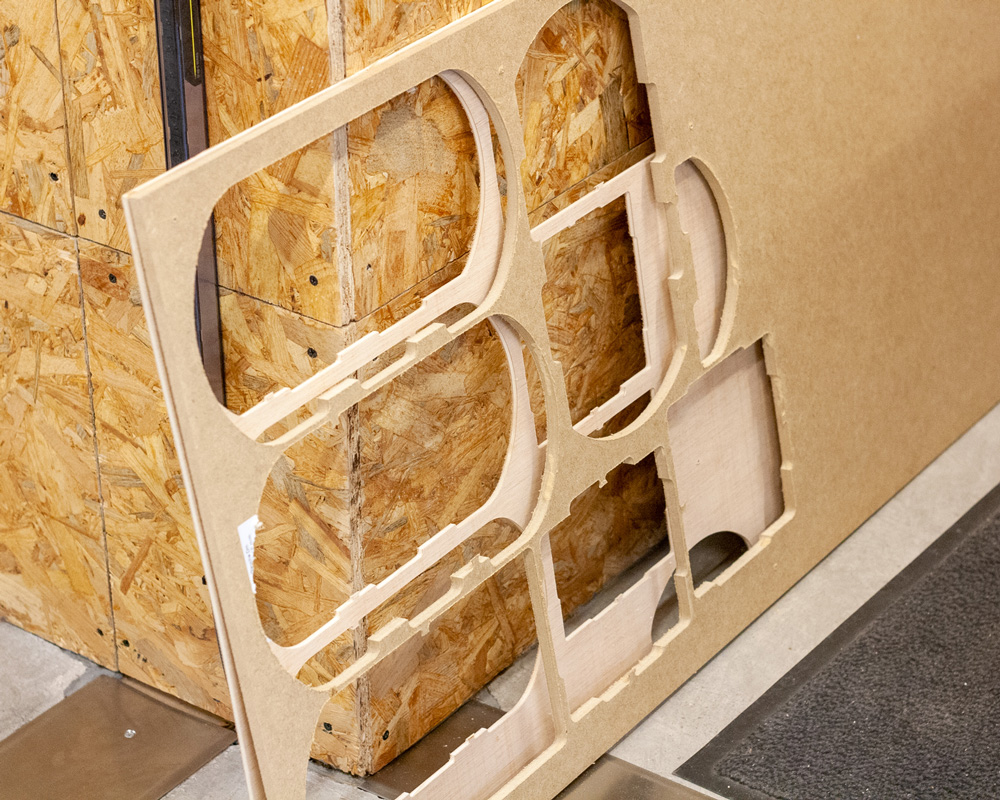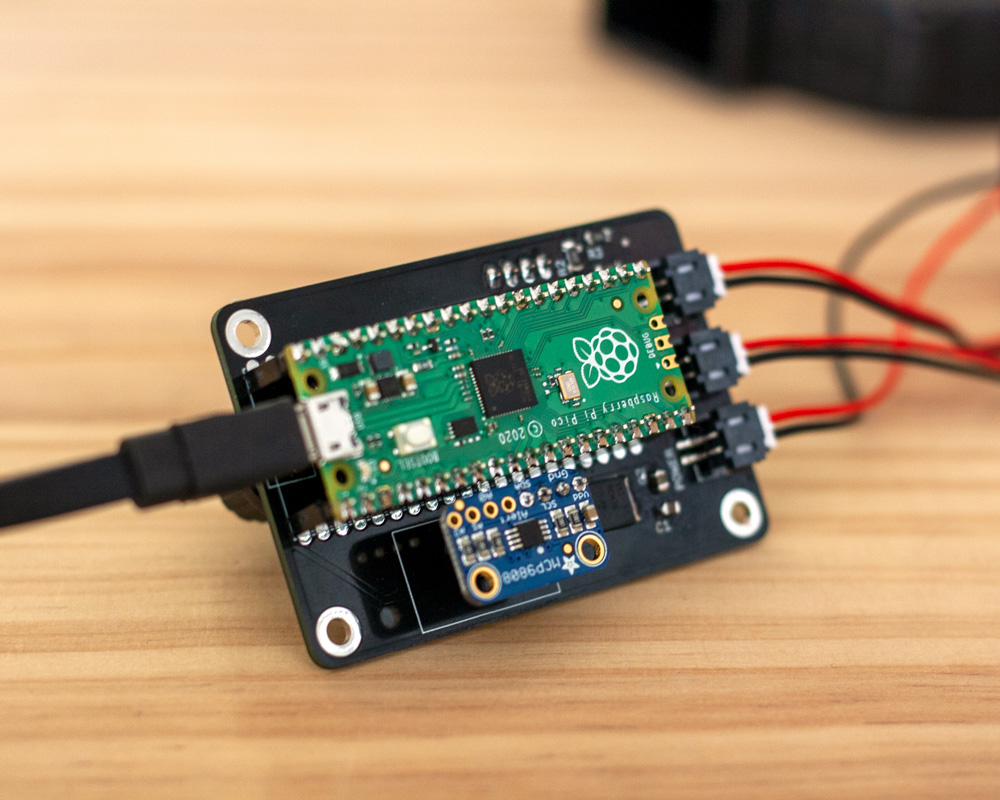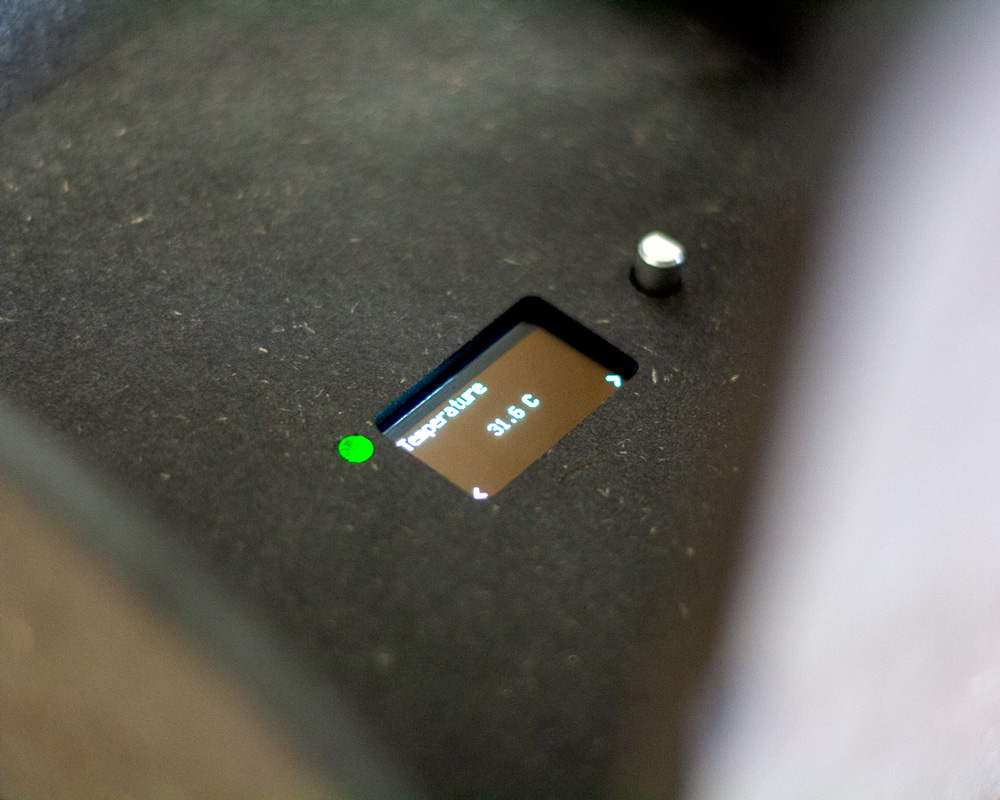In 2021, Domingo Club won the Project Excellence Award of the Distributed Design Awards. This is a story about what happened next, written by them.
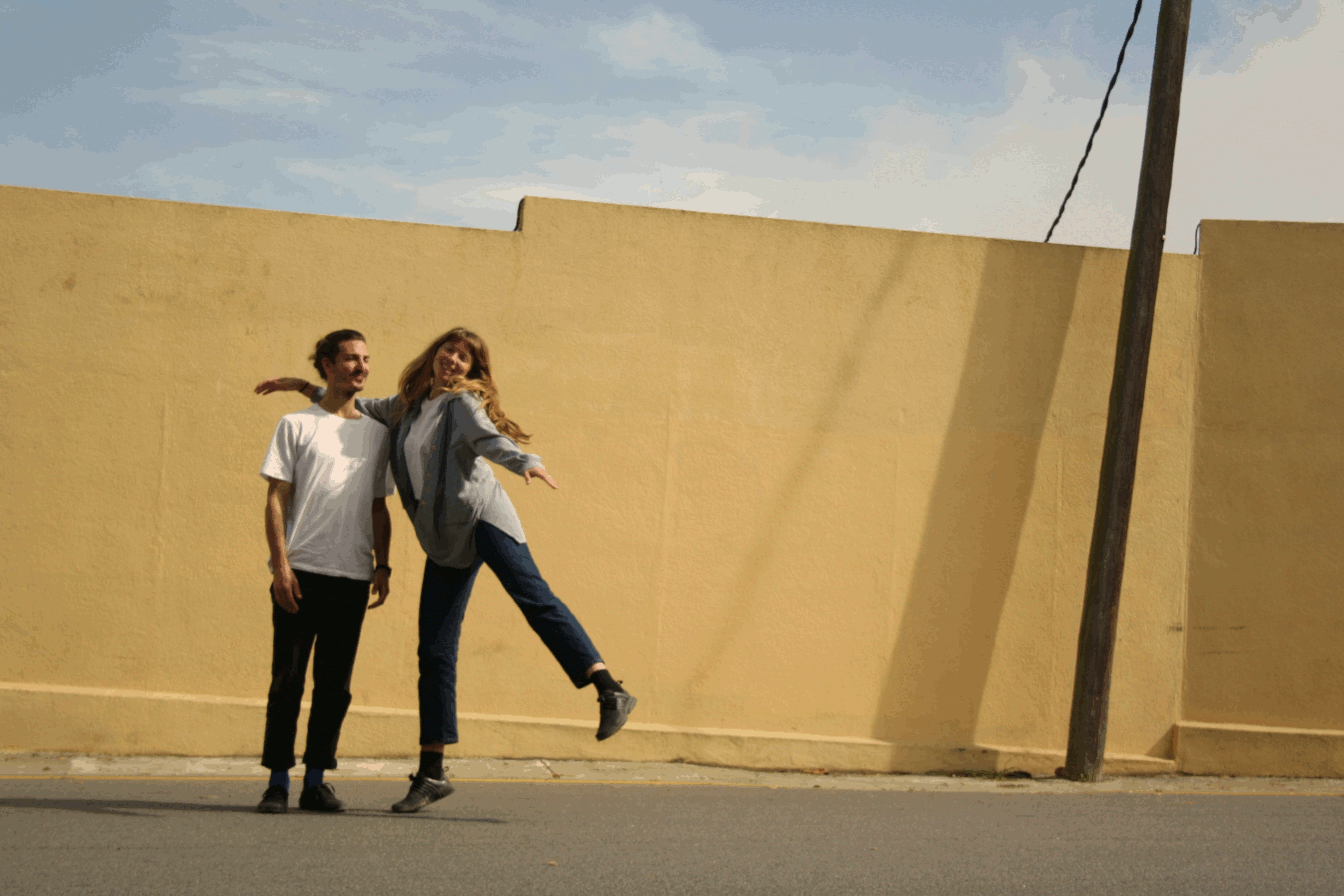
First, let introduce ourselves, we are Maud Bausier & Antoine Jaunard, a Belgian creative duo with complementary strengths, based in Barcelona. Our respective backgrounds ranging from design to digital fabrication, electronics, programming and biohacking, as well as our growing common interest in the practice of fermentation and the fantastic world of mushrooms led us to found Domingo Club in March 2021.
Domingo Club’s mission is to promote plant-based proteins, the practice of fermentation and to make tools for everyone to start fermenting their food at home by teaming up with mushrooms. In March 2021, we went from side projects related to our personal fermentation practice to a design studio focused on sustainable food and open-source tools. We therefore launched our website (domingoclub.com) to document our daily practice and our Instagram page (@domingoclub) to reflect these changes to a growing audience.
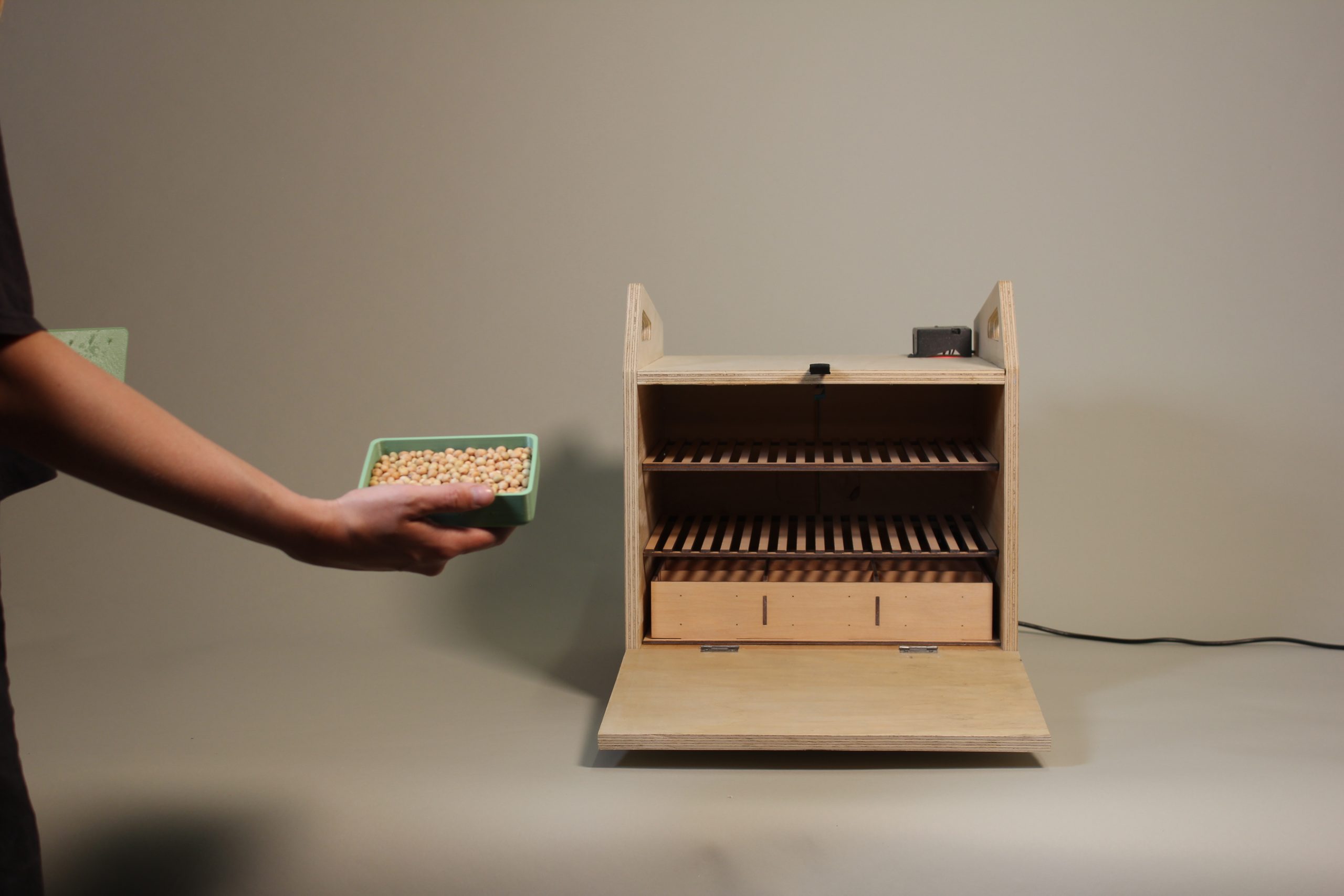
3 months later, in July 2021, we won the Distributed Design Excellence Award 2021, tackling all four core principles of the distributed design model: Open, Ecosystemic, Sustainable and Supportive. At that time of launching our project, this award was especially significant and encouraging as it celebrates the best maker and design responses to the post-industrial design paradigm and it recognizes the most innovative, supportive and sustainably designed projects across Europe. We felt that our intentions were perceived and that we were on the right track.
One year on, let’s review what the Distributed Design Award has brought us and what we have achieved since then.
1. Renting a Studio
We moved our 3D printer, wooden boards, electronic components, and boxes filled with a myriad of prototyping materials from our apartment to a creative shared space in the urban design district of Poblenou in Barcelona. Once an industrial area, it began a process of transformation and regeneration in the late 1990s and is now home to entrepreneurial hubs. This move has definitely contributed to everything that follows below.
2. Improving our 3D printed tempe(h) moulds and exploring other materialities
We did a collaboration with Valentina from MyVeganFam as part of Hyper Global Hyper Local, a European maker exchange. Valentina is a professional tempe(h) maker based in Amsterdam. She gave us excellent feedback on our tempe(h) making tools, which gave us a better understanding of the practice from an experienced practitioner’s perspective. This collaboration resulted in a final version of our 3D printed mould, in two sizes, which Valentina printed herself locally in a makerspace (her first experience) and then tested! We also explored other materials such as silicon and glass. This collaboration ended with an online event called Tempe(h) Dialogue that we host together with Valentina to publicly discuss our maker exchange on tempe(h) making tools, and answer questions from enthusiasts. It was great to connect with the tempe(h) fermenter community from which we have received much interest!
3. Cooking tempe(h) and sharing it
We started a tempe(h) Lunch series in our studio, a convivial moment where we cook a delicious tempe(h) dish and share it with friends and friends of friends. It’s great to see people discovering tempe(h) and loving it. Everything is vegan, local, organic and based on a pay-what-you-want system.
4. Presenting our Fermenter Lab
We finalized a second version of our incubator that we have called Fermenter Lab and that we have presented in several events, such as :
* An online presentation during FAB16 Montreal, the worldwide event of the Fablab network.
* The Foodtech 3.0 Showcase in Palo Alto, This was the closing event of the Food Tech 3.0 accelerator programme we have been participating in for the past six months. We took part in sessions with other (low) food tech related projects on alternative business systems, building community, using digital fabrication to prototype and bring our ideas to life.
* Poblenou Open Night, a night in which the spaces of the Poblenou Urban District open their doors and offer a wide programme of cultural activities
* Foodture in the Design Center of Barcelona, the summit of food design, food tech and social food.
5. Launching the Domingo necklace for the festive season
Just in time for the festive season, we released the Domingo Necklace. A poetic invitation to start fermenting tempe(h) without any other device than your body. Simply wear this necklace for a day or two and ferment your own plant proteins with your own heat. We presented this product at All Ferments, a fermentation micro festival and at Festivalet, an important independent craft fair in Barcelona. The Domingo Necklace has also been published in Mold Magazine, a magazine about the future of food that explores how design can help feed a hungry planet.
Our participation in these events, both with the Fermenter Lab and with the Domingo Necklace, gave us the opportunity to present what we do and why we do it to an incredible number of people. It was great to see people’s reaction and get their feedback, as most of them were not familiar with tempe(h) or even fermentation. Feedback is a great resource for us, we are always on the lookout for it (so please feel free to send us your comments).
6. Fermenter Mini & New website
These latest events, along with our New Year’s resolutions have led us to develop a mini version of our fermenter, a domestic device that we imagine in everyone’s kitchen so that anyone can start fermenting tempe(h), this natural source of plant protein. This version has allowed us to go further in the choice of materials, to simplify the design and to optimise the manufacturing process as well as to be more precise in the programming. In the same vein, we have also redesigned our website to clarify our mission to the general public. We recently have presented this new version in the Poblenou Open Day, a day when the creative community of the Poblenou Urban District open more than seventy spaces offering varied programming and to the official inauguration of the Ateneu de Fabricació Digital de Gràcia, a public training and project creation space focusing on digital training, crafts and textiles, supporting citizen-led educational and social innovation projects.
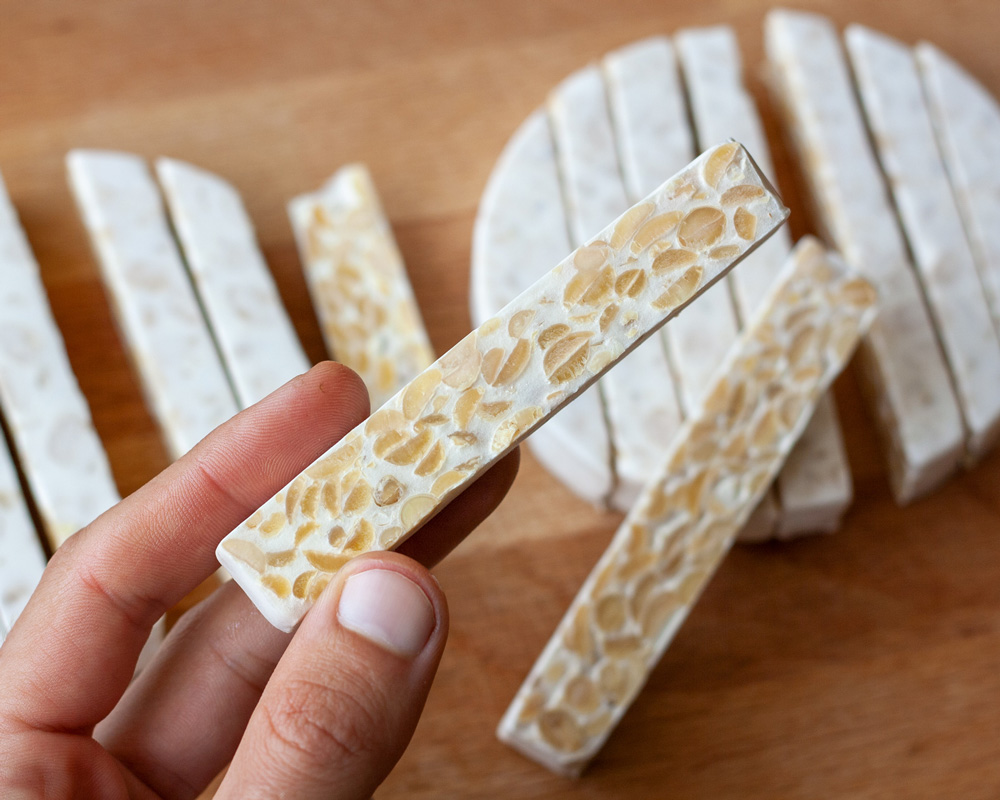
7. Seeing our fermenters & moulds being used!
At the same time as we push our project a little further each time, we see it already existing around us and it thrills us to see that others are taking part in our mission and movement. We saw some of the Fermenters Labs built by students of, among others, Fab Lab Barcelona and the Willem de Kooning Academy Rotterdam. We also saw on Instagram several series of 3D printed tempe(h) moulds or tempe(h) fermented with body heat. This definitely encourages us to further document our tools and enter a hands-on workshop and education by doing phase.
What’s next?
We are very happy when we look back and see our journey. The project looks like us and takes the shape and way we want. We get good energy from the people around us and this motivates us. We are learning and growing with our project, connecting with people and converting temple(h)-eaters.
We are now very close to finishing version 1 of our fermenter mini. After completing its documentation, we will be ready to release it officially as an open-source initiative but also as a ready-to-buy product in the form of a kit on our website.
Then we want to start organising workshops on how to ferment and cook tempe(h) but also how to fabricate the fermenter with digital fabrication to transfer our knowledge and connect with the users and the fermenters. Our ultimate goal is to create a platform where everyone can exchange on the practice of tempe(h) but also on the maintenance and evolution of the fermenter.
Don’t hesitate to contact us, we will be happy to discuss our and/or your projects with you. (We speak English, Spanish and French.)
? Email us at [email protected]
? Subscribe to our newsletter
? Follow us on Instagram
